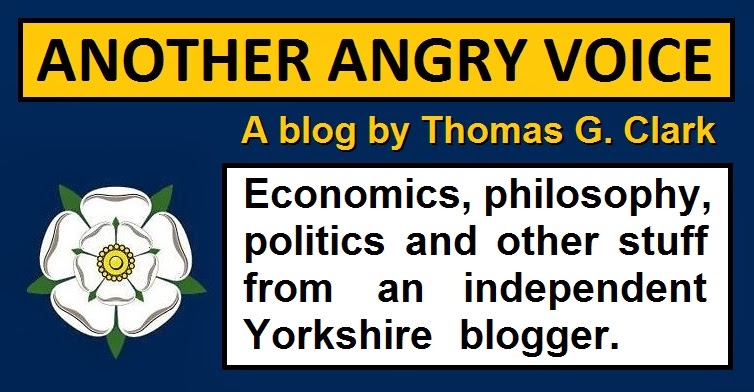"My view is that for some people the national minimum wage may be more of a hindrance than a help."One of the most offensive things about this proposal was the way that Davies dresses up this attack on the employment rights of people with disabilities as a way of "helping them".
"People with a learning disability clearly, by definition, cannot be as productive in their work as somebody who has not got a disability of that nature."
"If those people who consider it is being a hindrance to them, and in my view that's some of the most vulnerable people in society, if they feel that for a short period of time, taking a lower rate of pay to help them get on their first rung of the jobs ladder, if they judge that that is a good thing, I don't see why we should be standing in their way."
The first criticism is that the National Minimum Wage is a pittance, especially for people under the age of 21. There is a large disparity between the minimum wage and what is considered to be a living wage. Allowing companies to pay disabled adults less than £6.07 an hour seems like an absurd suggestion, but allowing them to pay less than £3.68 to disabled under 18s (that have finished compulsory education) would be grotesque exploitation.After a storm of criticism Philip Davies reacted by claiming that it was just "left-wing hysteria". An absurd and misleading assertion since criticism came from across the political spectrum. In fact one of the MPs to criticise the proposals to his face during the Parliamentary debate was fellow Tory MP Edward Leigh, who asked him: "Why actually should a disabled person work for less than £5.93 an hour? It is not a lot of money, is it?" Senior Tories were quick to distance themselves from the proposals and a Tory spokesperson tried to calm the storm by stating that "these comments do not reflect the views of the Conservative party and do not reflect government policy".
Huge numbers of people in minimum wage occupations already have their incomes "topped up" by Tax Credits and Housing Benefits, which are essentially forms of government subsidy to employers that pay poverty wages to their workforces. If the government allow employers to opt out of the Minimum Wage, the taxpayer would end up making up the difference in increased Tax Credit and Housing Benefit payments. Davies' scheme can be seen as yet another example of Tory MPs attempting to make the taxpayer subsidise corporate interests.
Another obvious consequence of this "opt out" scheme is that employers would put pressure on the disabled to accept lower wages. One can imagine the situation. "We have had plenty of able-bodied people apply for this position Mr Bloggs, however in light of your disability we would consider offering you the position if you were prepared to accept a lower wage in order to compensate us for your disability".
Yet another criticism is the fact that allowing one minority additional rights, namely the right to undercut the labour market by legally working for less than the minimum wage, is a form of positive discrimination. Tories normally tend to go frothy at the mouth about any form of positive discrimination. Imagine their reaction if someone like Harriet Harman had suggested bringing in discriminatory legislation to favour the interests of the disabled, ethnic minorities or single parents. People like Philip Davies would have been screaming blue murder. However, when it comes to attempts to undermine labour rights, their objection to positive discrimination suddenly evaporates.
Yet another objection is Davies' statement that disabled people are "clearly, by definition" less productive than people without disabilities. Does anyone think that Stephen Hawking is "by definition" less capable of brilliant scientific achievements than some random scientist that doesn't happen to have motor neurone disease? Does anyone believe that Richard Branson is "clearly" less able to run a gigantic corporation than some random person that isn't dyslexic? Does anyone really believe that whether a person is disabled or not is the primary contributing factor to their productivity? Does anyone believe that the Northern Ireland peace process would have been significantly better had someone "more productive in their work" than the cancer sufferer Mo Mowlam been in charge?
It was good to see that the Tories distanced themselves from these proposals, however one suspects that this distancing operation had more to do with the storm of political criticism, than it had to do with any moral objection. That the Tories hold the disabled in contempt is absolutely obvious from the fact that not a single Tory MP supported John McDonnell's early day motion to end the Atos disability denial system. The Tory contempt for labour rights is even more obvious, with people like Iain Duncan Smith forcing the unemployed to work for corporations for no wages under the Workfare scheme.
Philip Davies' suggestion that employers should be allowed to pay less than the minimum wage to the disabled just goes to show the kind of people that become Tory MPs. He clearly didn't think his idea through or consult with any mental health charities before proposing it in Parliament. The motivation behind the idea is quite obviously contempt for disabled people, (who he considers to be "clearly" inferior, "by definition") and the natural Tory contempt for the whole concept of labour rights. Not only that, but his pathetic defence that criticism of his proposal is just "left-wing hysteria" clearly demonstrates the Tory paranoia, that all criticism of their lunacy must be some kind of left-wing conspiracy.
See Also


No comments:
Post a Comment